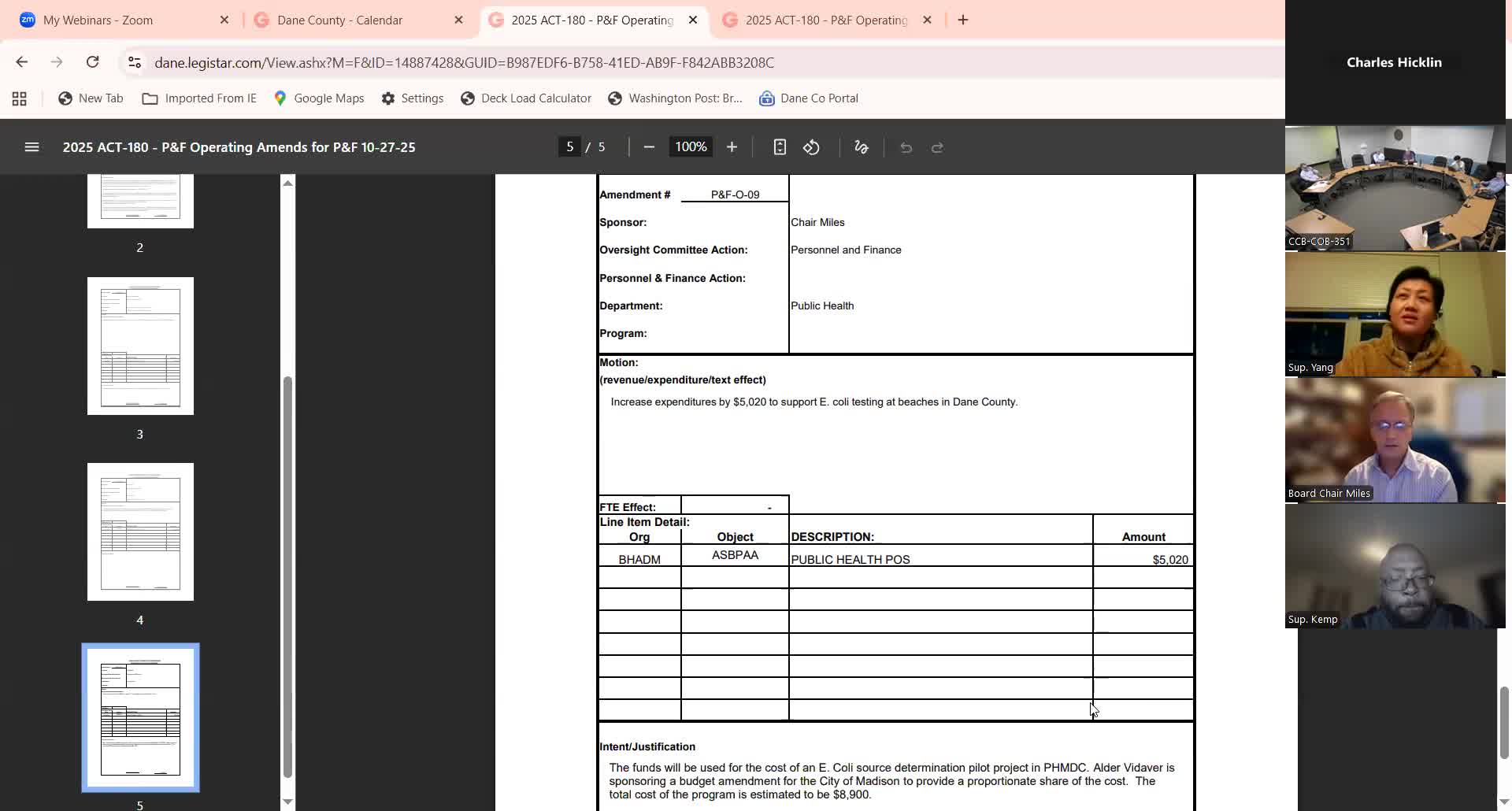Dane County committee considers $5,020 pilot to trace E. coli sources at local beaches
Get AI-powered insights, summaries, and transcripts
Subscribe
Summary
Chair Miles presented an amendment to add $5,020 to support qPCR testing to identify sources of E. coli at select county beaches. Supporters called it a pilot to help solve recurring contamination and inform remediation; no vote was held.
Chair Miles presented an amendment (PF09) on Oct. 27, 2025, to increase county expenditures by $5,020 to fund a pilot using qPCR source‑tracking to identify contributors to E. coli contamination at county beaches.
James Tai, executive director of Clinics Alliance, spoke in support and described the proposed cost split: about $5,000 from the City of Madison and $5,020 from Dane County for a total pilot budget of roughly $10,000. Tai said the pilot would pay a third‑party lab to run qPCR tests that use DNA markers to estimate relative contributions of human, bird and other animal sources. "This type of analysis uses DNA markers to identify E. coli sources and relative contributions by animal type, human, bird, etcetera," Tai said.
Committee members and staff discussed which beaches to include. The presentation named three candidate sites that have shown high post‑storm E. coli readings in recent testing: Ulbrich, Spring Harbor and Ester Beach. Tai and Chair Miles said public health would make the final selection and that the pilot budget would cover roughly 60 tests after storm events at a chosen beach.
Supporters said the pilot moves beyond presence/absence monitoring toward source identification, which can guide targeted remediation. "This pilot is to determine the source," Tai said. Chair Miles and other supervisors noted the county's participation in regional efforts (formerly the Clean Lakes Compact, now referred to as Renew the Blue) and framed the pilot as a first step to inform stormwater and wildlife‑management responses.
The amendment was discussed but not voted on at the Oct. 27 meeting. Committee members asked logistical questions about sampling frequency, lab selection and how the city and county would coordinate funding transfers if the city chooses to contribute.
If adopted, staff said the pilot would use trained volunteers for sampling assistance, and samples would be sent to a lab (identified by staff) for qPCR analysis to inform follow‑up steps.
